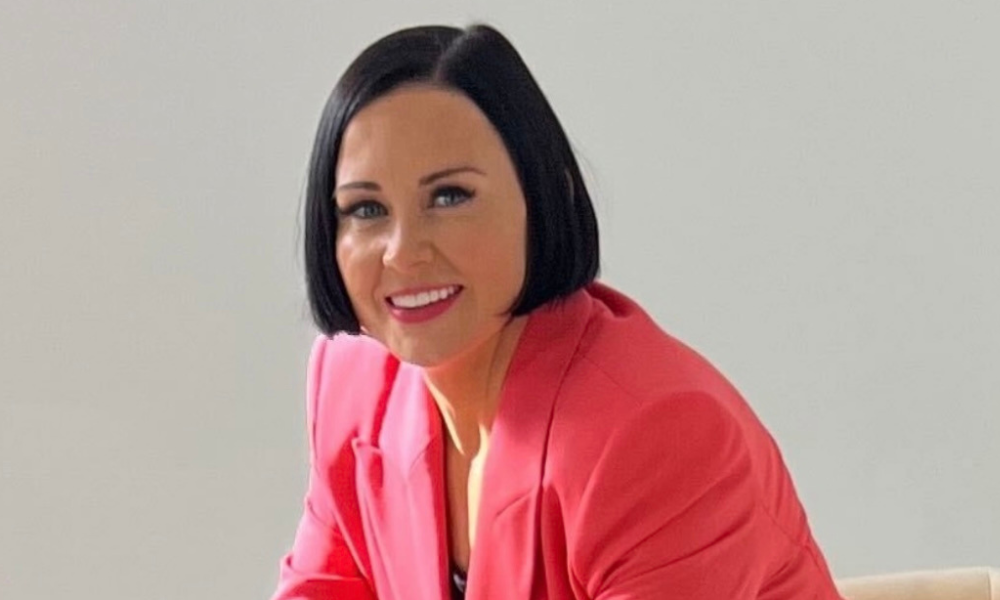
Natalie Flynn was tired of being offered less pay than her male co-workers, so she did something about it. Now she's going a step further

A new voluntary certification system to recognise and reward companies leading the way in tackling the gender pay gap has been launched in Australia.
Australian pay equity software firm equidi has partnered with international NGO the Fair Pay Innovation Lab, to offer the Fair Pay Check Certification to local employers.
To gain certification, employers will work with equidi to create detailed data and analysis of their gender pay gaps.
If an employer meets the benchmarks set by the Fair Pay Check Certification global assessment matrix, they can be awarded a badge at one of three levels – Analyst, Developer, and the highest rating - Leader.
Founder and CEO of equidi, Natalie Flynn, believes the new certification will encourage employers to move beyond compliance with gender pay equity requirements to innovation and leadership.
“We're going to be able to help companies to really add value to even their talent attraction processes. By being deemed a fair play employer, [it says] we are going above and beyond government and compliance, to say we actually genuinely live and breathe this as a value within in our organisation,” she said.
“I think this is really going to lead the way to get other companies understanding and valuing how important this is, particularly with the new generations coming into the workforce, it's probably more important than ever for companies to be focusing on this."
The Universal Fair Pay Check, launched in 2021, is designed to certify companies worldwide who are identifying and closing existing wage gaps and uses what it describes as “Fair Pay Matrix” for the pay equity analysis.
In Australia, private companies and Commonwealth public sector agencies that employ 100 or more employees must report annually to the Workplace Gender Equality Agency (WGEA) on gender equality in the workplace, including gender pay gaps and this information is publicly available.
New legislation will also require employers with 500 or more employees to select and show improvement in three gender equality targets.
WGEA puts the total remuneration average gender pay gap at 21.8%, saying that for every $1 on average a man makes, a women earn 78c, which is a difference of $28,425 over 12 months.
The idea to create equidi was born out of Flynn’s own experience of gender pay inequality as a senior HR leader.
When she moved into her first chief people officer role, she says her pay was 50% less than the benchmark for the role and between 50 to 60% less than her male peers.
It took Flynn two years to fix her pay and she had a great career with that business but a few years later when she was headhunted for a role with an ASX top 300 company with a $1 billion market capitalisation, she had a similar experience.
“Whilst they made me an offer that was equitable on base salary, when it came to total remuneration, I was offered roughly a third of what the male peer group was and that signalled to me that it really was time for change and there really was a disconnect between pay practices and systems," she said.
“I got to thinking of how we could have a technology solution that would help executives and leaders make the right decision from the get-go. When we don’t have the right data at our fingertips, particularly for people teams and leaders, it can be really hard to make the right decision.
“For me it was about, I can continue to be in HR and keep fighting this fight on a one-to-one basis or I can go and do something about it.“
Equidi’s software platform integrates with a company’s payroll data to allow real time analysis and provide insights into what is driving pay gaps, not just the top line results. It provides data analytics, diagnosis and can automate reporting for WGEA and boards.
Flynn said for her clients, equidi helps them go beyond the headline numbers and understand what is driving their gender pay gap and identify the root cause.
“For most organisations that's probably the most difficult bit because we need to take more of a data science approach,” she said.
“They [clients] have been really amazing in getting underneath the detail and then being able to take targeted and data-led action on it because sometimes it's not always obvious what the issue is,” she said.
“When you look at the WGEA numbers they may indicate it's more structural or systemic issues and an example of that maybe we don't have enough women in leadership roles, or we don't have enough women in the C-suite, that's going to cause a high gender pay gap.
“The answer to that isn’t just to hire more women because if you hire more women and put them in the entry level roles or the admin roles that's probably going to make you pay gap worse so you need I have a clear strategy to address where the problem is – is it an attraction problem, is it a retention issue, is it succession planning?
“When they can see the data through our lens you can clearly see across any part of the business where it is and apply the right strategy to address the issue from there.”
In the three years since launch, equidi has worked with a wide range of organisations including Tennis Australia, Melbourne Storm, Future Super Group and Essential Energy.
Flynn said her customers had reduced their unadjusted gender pay gaps by an average of 3% and for adjusted page gaps, an average reduction of 7%.
“I'm really happy that that journey was my journey because of being able to really ignite change in terms of how we think about remuneration and pay practises across Australia,” Flynn said.